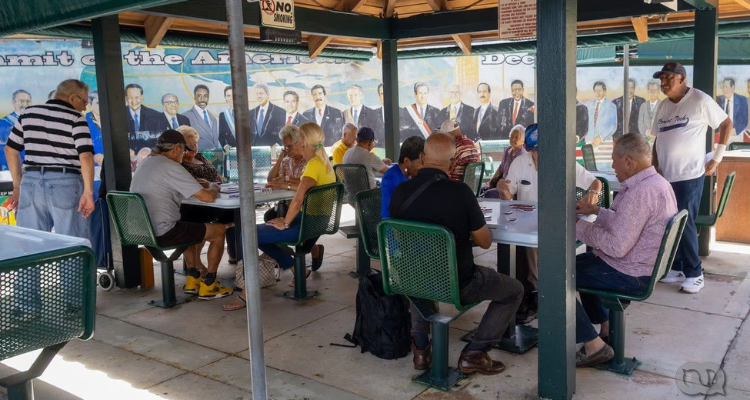The suspension of CHNV parole will leave thousands of immigrants without food assistance
The Trump Administration has delivered a harsh blow to the immigrant community in the United States: the immediate suspension of the Supplemental Nutrition Assistance Program (SNAP), also known as food stamps, for those who arrived under the humanitarian parole. The measure, formalized by the Department of Agriculture on April 3, will mainly affect Cubans and Haitians, who until now had legal support to receive food, medical and temporary housing assistance.
The directive is part of the policy of border closures and mass deportations pushed by Trump since his return to the White House, and has a key date of April 24, 2025. Starting that day, all people under CHNV parole (Cubans, Haitians, Nicaraguans and Venezuelans) will lose their right to SNAP benefits, unless they can prove a change in eligible immigration status.
Who will be affected?
- About 321,000 Cubans and Haitians could lose food aid.
- The total number of immigrants under humanitarian parole amounts to 532,000 people from Cuba, Haiti, Nicaragua and Venezuela.
- The revocation does not apply to those who have applied for asylum, TPS, T or U visas, or have ongoing family or work proceedings.
- Nicaraguans and Venezuelans were never widely eligible for SNAP, except in special cases such as children or the elderly.
Although the suspension of SNAP does not require immediate notification from the beneficiary, it is recommended to inform the authorities of any change in immigration status to avoid being removed from the program during certification processes.
Partial protection for Cubans and Haitians
Both groups still have legal protection under federal laws such as:
- The Refugee Education Assistance Act (1980)
- The Personal Responsibility and Work Opportunity Act (1996)
Thanks to these, Cubans and Haitians can continue accessing financial, medical and food services as long as there is no final deportation order.
In the case of Cubans, it is estimated that only about 26,000 would be directly affected by this measure, since they are those who entered after March 2024 and have not yet completed one year of continuous residence. Many others have already started processes under the Cuban Adjustment Act, which provides them with a path to legalization and additional protection.
Legal response: lawsuits and possible halts
In response to this immigration offensive, two federal lawsuits have already been filed against the Department of Homeland Security (DHS):
- One in Boston, led by the Justice Action Center, parole beneficiaries, sponsors, and the organization Haitian Bridge Alliance.
- Another in Washington D.C., promoted by immigrant advocates with legal support from the same Justice Action Center.
Both legal actions have hearings scheduled for next week, and judges could issue temporary orders that halt not only the revocation of CHNV parole, but also other measures against Afghan and Ukrainian refugees.
“Food is not the biggest problem”
Immigration attorney Willy Allen, based in Miami, downplayed the impact of this food suspension. According to him, the biggest concern for Cubans should be the cancellation of work permits, not the food stamps.
“The Cuban Adjustment Act has the power to forgive even people who remain with expired visas and status,” Allen said.
“In the end, their greater protection will prevail over all other administrative regulations.”
With this new wave of restrictions, thousands of immigrants see not only their future in the United States at risk, but also their access to basic needs like food. The community and legal advocates are already mobilizing to prevent what many consider a humanitarian crisis in the making.
